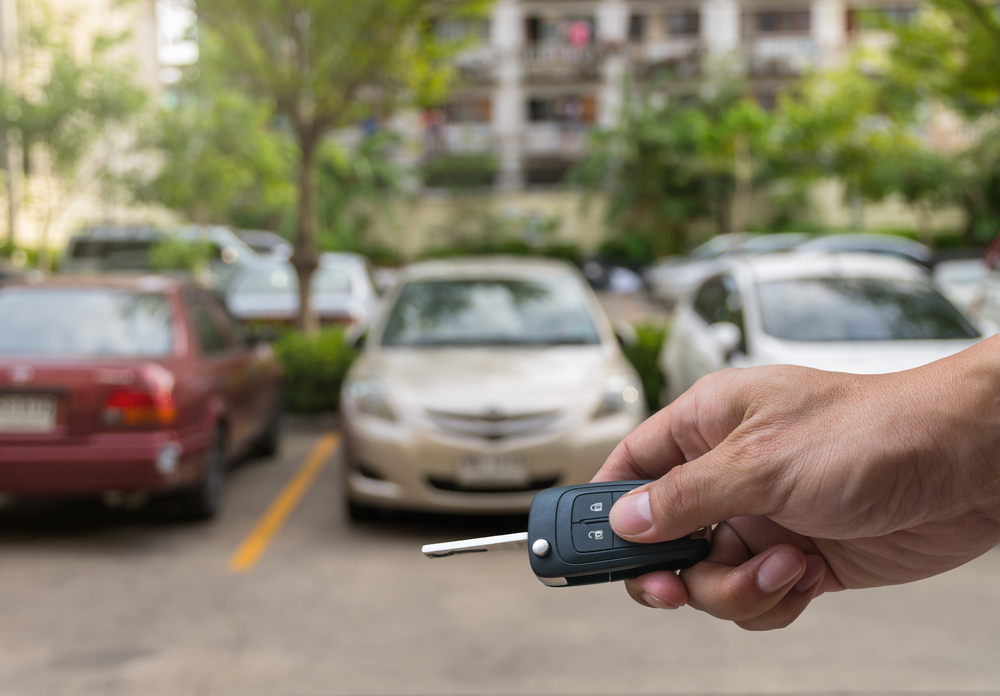
Does Car Insurance Cover Your Rental Car After an Accident in Alabama?
While your car is in the shop for repairs, you might wonder how you’ll manage your daily responsibilities like commuting to work, running errands, or picking up the kids from school. One critical question that arises is: who will cover the costs for a rental car after a car accident?
At Jay Pickering Law Firm, we understand the stress and inconvenience caused by such accidents. With over 27 years of experience assisting clients through similar situations, we have the tools and the knowledge to guide you smoothly through the process of securing a rental car after an accident. This article aims to clarify your rights and the steps necessary to claim rental car costs.
We’ll explore the responsibilities of the at-fault party’s insurance, detail the importance of rental car reimbursement coverage, and provide a straightforward guide on how to manage the claims process efficiently. Whether you’re dealing with an uncooperative insurance company or uncertain about your coverage limits, our insights will prepare you to navigate these challenges successfully. Let’s explore everything you need to know to secure a rental car after an accident as well as other compensations you may be entitled to.
Who Is Responsible for Covering Rental Car Costs After an Accident?
Determining who covers the cost of a rental car after an accident hinges on the question of fault. If you are involved in a car accident and are not at fault, the responsibility typically falls on the at-fault driver’s insurance to handle your rental car expenses while your vehicle is being repaired. This process, while straightforward in theory, often involves a series of steps to ensure that the costs are covered without delay.
Liability and Insurance Claims for Rental Car After Accident
When an accident occurs, the at-fault driver’s insurance is primarily responsible for compensating the not-at-fault party. This compensation generally includes the cost of a rental car. The claim is processed under the property damage liability part of the at-fault driver’s policy, which is designed to cover repairs to your car and associated expenses like a rental vehicle.
Direct Billing vs. Reimbursement
There are two main ways the rental car costs after an accident can be managed:
- Direct Billing: Some insurance companies will handle rental car expenses through direct billing. This means they will pay the rental company directly, easing your burden and ensuring that you are not out-of-pocket.
- Reimbursement: In other scenarios, you may need to pay upfront for the rental and then submit receipts to the at-fault driver’s insurance for reimbursement. While this method can initially be more cumbersome and financially taxing, reimbursement should cover all costs, provided they fall within the agreed policy limits.
What If the At-Fault Party is Uninsured or Underinsured?
In cases where the at-fault party lacks sufficient insurance coverage or is uninsured, your options might seem limited. However, if you have uninsured/underinsured motorist coverage or optional rental reimbursement coverage on your own policy, you can claim these costs through your insurance. Although this route might involve paying a deductible, it ensures that you are not left without a vehicle during the repair process.
How to Prepare for the Car Rental Claim After an Accident
To expedite the claims process and avoid unnecessary delays, it’s important to:
- Gather and document all necessary information, including the insurance details of the involved parties and the accident report.
- Report the accident to both your insurance and the at-fault party’s insurer promptly.
- Keep detailed records and receipts if you need to pay for the rental upfront.
By understanding these aspects of the claims process, you can better navigate the often complex path to securing a rental car after an accident without extra stress. If you need a hand, give us a call at Jay Pickering Law Firm. We’re here to protect your rights and fight for all of the compensation you deserve.
Understanding Car Rental Reimbursement Coverage
Rental reimbursement coverage is an optional insurance add-on that plays a crucial role when your vehicle is out of commission due to an accident. Not standard in most auto insurance policies, this coverage needs to be purchased separately and can be a lifeline if you frequently rely on your vehicle for daily activities.
How Does Rental Reimbursement Coverage Work?
This coverage pays for the cost of your rental car if your vehicle is in the shop due to a covered accident. The specific terms can vary, but typically, it includes a daily and total maximum limit, such as $30 per day up to a total of $900. This means the insurance will cover the rental costs up to $30 each day until you reach either the total maximum limit of $900 or your car is repaired, whichever comes first.
Why Consider This Coverage?
Opting for rental reimbursement coverage is particularly wise if you lack access to alternative transportation. It ensures that you’re not stranded without a vehicle and can continue your daily routine relatively uninterrupted. Additionally, it provides peace of mind knowing that an accident won’t necessarily lead to significant out-of-pocket expenses for transportation.
Understanding and opting for rental reimbursement coverage can safeguard you against unexpected disruptions and expenses, ensuring a smoother recovery process after an accident.
Steps to Claim Your Rental Car Costs After an Accident if Not at Fault
Navigating the insurance claims process to cover your rental car costs when you’re not at fault requires an organized approach. Here’s how to ensure you effectively manage the claim and secure a rental car with minimal hassle:
1. Report the Accident
Immediately after the accident, it’s crucial to report the incident to both your insurance provider and the insurance company of the at-fault driver. Provide detailed information about the accident and all parties involved. This initial report sets the foundation for your claim.
2. Confirm Rental Coverage
Once liability has been determined, contact the at-fault driver’s insurance to confirm that their policy includes rental coverage for third parties. Obtain this confirmation in writing if possible, as this will be essential documentation if there are any disputes or delays in processing your claim.
3. Understand the Coverage Limits
Before you rent a car, understand the limits of what the at-fault driver’s insurance will cover. This typically includes a daily rate and a maximum total amount. For instance, the insurance may cover up to $30 per day for a rental, with a cap at $900 total. Choosing a rental within these limits will ensure full coverage.
4. Choose an Approved Rental Provider
The at-fault driver’s insurance company may have specific rental agencies they partner with, which could simplify direct billing. Ask for a list of approved rental providers and select one that fits your needs, potentially reducing upfront costs and facilitating smoother billing.
5. Keep All Receipts
Maintain thorough records of all transactions related to the rental car, including the rental agreement and any additional costs that may be covered. This documentation will be crucial when you submit your claim for reimbursement.
6. Submit Your Claim
With your documentation ready, submit your claim to the at-fault driver’s insurance. Include all receipts and a clear statement of the claim based on their liability and your coverage under their policy.
7. Follow Up Regularly
Claims can take time to process, and regular follow-up calls or emails can help ensure your claim is not forgotten. Keep the communication lines open and document all interactions with the insurance company.
These steps will help you navigate the claims process more effectively, reducing the potential stress and financial impact of renting a car post-accident. Remember, being proactive and organized is key to a smooth and successful claim experience.
Legal Support: When to Contact a Lawyer
Navigating the aftermath of a car accident, especially when it comes to securing a rental car after an accident or dealing with insurance claims, can often become complex and overwhelming. If you find yourself struggling with these issues, or if you have sustained injuries, it may be time to seek legal assistance.
How Jay Pickering Law Firm Can Help
At Jay Pickering Law Firm, we help clients who have been involved in car accidents through no fault of their own. An experienced Alabama car accident lawyer can help you understand the different aspects of accident claims, from securing rental car coverage to obtaining full compensation for your injuries. We strive to ensure that your rights are upheld and that you receive the support you need during this challenging time.
If you’ve been in a car accident and are unsure about how to proceed with securing a rental car, or if you have any questions about your rights and the options available to you, reach out anytime. Our priority is making sure you have all of the resources you need to achieve the best outcome for your case.
Contact us for a complimentary case evaluation focused on your specific situation. With experienced and professional legal support, you can focus on your recovery and leave the legal complexities to us. Remember, early legal consultation can often lead to more favorable outcomes and a smoother process overall.

Attorney Jay Pickering brings over 27 years of unwavering dedication to personal injury law, with a sharp focus on representing those injured in car, truck, and motorcycle accidents across Alabama. A proud alum of the University of Alabama School of Law, Jay is a member of the Alabama State Bar and the American Bar Association.
